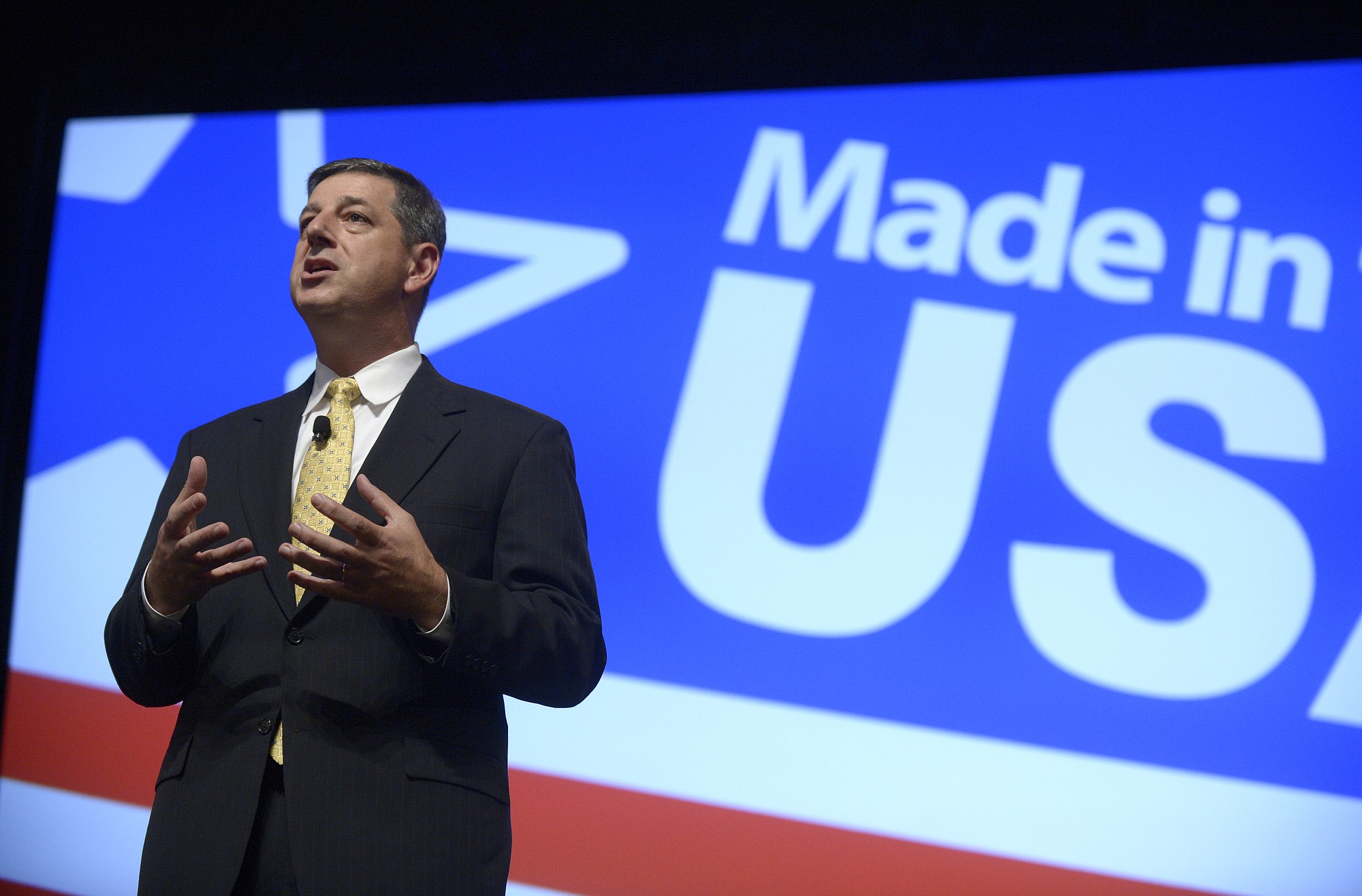Empty shelves, grumpy customers, long lines at the register: These are just some of the challenges facing Wal-Mart Stores Inc.’s new U.S. chief.
Greg Foran, who takes charge Aug. 9, inherits a chain wedded to an outdated big-box model, struggling to increase sales in stores and online, and losing customers because it can’t keep stores stocked. The sluggish U.S. performance contributed to lower-than-projected sales and profit in the quarter that ended April 30. Wal-Mart’s profit forecast for the current quarter also came in lower than analysts’ estimates.
By naming Foran, a 53-year-old New Zealander who ran the chain’s Asia operations, Chief Executive Officer Doug McMillon is betting a relative newcomer can revive a company losing relevance in a world increasingly dominated by Amazon.com. The promotion is “an acknowledgement of needing fresh thinking,” said Bryan Gildenberg, an analyst at Kantar Retail in Boston.
Foran has more than 30 years of retail experience in operations, merchandising and marketing. He previously headed Woolworths Ltd.’s supermarket division and held other senior roles at the Sydney-based company. He joined Wal-Mart in 2011 and became head of the China business in 2012. Foran was tapped for the Asia CEO job after revamping operations, pricing and product assortment in the Chinese stores.
David Tovar, a Wal-Mart spokesman, said executives have been impressed with Foran.
“Foran has a lot of experience on the operations side,” Gildenberg said. “He had a lot of focus on store-level experience and improvement. He spent a lot of time in stores and with store management. He’s an operator at heart.”
Foran has much to fix. With Wal-Mart’s low-income customers still living from paycheck to paycheck, the company hasn’t posted positive same-store sales for the past five quarters, according to Bloomberg. A reduction in food stamp payments has also weighed on sales. The shares have fallen 3 percent this year.
“It’s not like U.S. operations are lighting the world on fire,” said Brian Yarbrough, an analyst at Edward Jones & Co.
While Wal-Mart faces increasing competition, some of its stumbles have been self-inflicted. Last year, many items were not being replenished, leaving some shelves bare. Hundreds of emails were sent from once-loyal customers complaining they could no longer find what they were looking for and so were shopping elsewhere.
In March, Wal-Mart executives said that store shelves need to be better stocked and that resolving the matter could be a $3 billion opportunity. They said improving “in-stocks,” a measure of how much merchandise is available for shoppers to buy, was a top focus.
But the situation hasn’t improved, according to a June 20 report from Cleveland Research. The availability of products “actually seems worse year-to-date,” the report said.
The merchandise has been piling up in aisles and in the back of stores because Wal-Mart doesn’t have enough bodies to restock shelves, store workers say. Wal-Mart has pared its domestic workforce in recent years. U.S. staff at Wal-Mart and Sam’s Club fell by about 20,000 between 2008 and this January, according to a March filing. The company has about 1.4 million workers nationwide. In that same period, it has added more than 650 U.S. Wal-Mart stores, bringing the total to more than 4,200.




